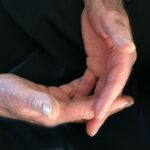Why Most Men Miss the Warning Signs of Low Testosterone (Until It’s Too Late)
As men age, hormone levels naturally decline — but for many, the drop in testosterone is more than a number. It impacts energy, mood, sexual performance, and even how you feel in your own skin. Knowing the signs of low testosterone in men over 40 is the first step toward reclaiming control over your body and your confidence.
What is Testosterone and Why Does It Decline?
Testosterone is the primary male sex hormone responsible for muscle mass, libido, bone density, and mood regulation. After age 30, levels start to decrease gradually — but by 40, that decline can speed up due to stress, poor sleep, inactivity, and dietary issues.
The Overlooked Symptoms You Shouldn’t Ignore
📉 Testosterone Decline After 40: Side-by-Side
| Indicator | Healthy T Levels | Low T Levels |
|---|---|---|
| Libido | High | Low or absent |
| Energy | Consistent | Fatigue, Burnout |
| Muscle Mass | Maintained | Decreasing |
| Body Fat | Lean | Increased belly fat |
| Mood | Stable | Irritability, Depression |
Many men associate low testosterone with just low libido, but the reality is more complex. Signs often include:
- Chronic fatigue and low energy
- Depression or lack of motivation
- Loss of muscle mass despite training
- Increased body fat (especially belly)
- Low libido or weak erections
- Mood swings and irritability
Testosterone and Sexual Health
If you’ve been struggling with erections, stamina, or a drop in sexual desire, testosterone could be the missing link. Discover more about this connection in our guide to how stress affects libido after 40.
How Low Testosterone Affects Your Daily Life
Low testosterone doesn’t hit all at once. It creeps in slowly — missed gym sessions, lack of interest in sex, constant tiredness. You start blaming age, work, or stress, but it’s often hormonal imbalance. Testosterone fuels drive, competitiveness, confidence, and even memory. Without it, everything feels harder.
Emotional and Mental Health Symptoms
One of the lesser-known signs of low testosterone in men over 40 is the emotional toll. Men report feeling “flat” or emotionally numb. You may struggle with motivation, feel less assertive, or avoid social situations. Mood swings, anxiety, and even mild depression are common — and often misdiagnosed when testosterone isn’t considered.
The Physical Red Flags
Physically, your body starts to change. Even with consistent workouts, you might notice muscle loss and stubborn belly fat. You may bruise easily, recover slowly, or feel chronic soreness. Low testosterone reduces protein synthesis, impairs recovery, and increases fat storage — especially around the abdomen and chest.
Sleep and Testosterone: A Two-Way Street
Poor sleep lowers testosterone. Low testosterone worsens sleep. It’s a vicious cycle. If you’re waking up groggy despite 7–8 hours in bed, or experiencing sleep apnea, your hormones may be out of sync. Deep sleep (particularly REM) is when the majority of testosterone is produced — protect it at all costs.
Testosterone and Erections
Although testosterone isn’t the only factor in achieving an erection, it plays a vital role. Men over 40 with low testosterone often report weaker or inconsistent erections, reduced sensitivity, and fewer morning erections. If you’ve been asking yourself is ED normal at 40, low T may be part of your answer.
Hormonal Imbalance vs. Aging
Aging alone doesn’t have to mean a slow, tired, sexless life. The problem is that most men accept decline without question. Low testosterone is not “just getting older” — it’s a correctable issue. Optimizing testosterone can reverse many symptoms previously chalked up to age.
Blood Tests and Diagnosis
If you suspect low testosterone, the only way to confirm is through blood work. Total testosterone under 300 ng/dL is often considered low, but free testosterone (the active form) is what really matters. Always test in the morning, and work with a provider who understands hormonal health — not just general medicine.
Causes of Low Testosterone After 40
Understanding what causes testosterone to dip can help you make smarter decisions. The most common causes include:
- Chronic stress (raises cortisol, lowers T)
- Obesity, especially visceral fat
- Alcohol and drug use
- Lack of physical activity
- Insufficient protein and healthy fats
- Environmental toxins (plastics, parabens, etc.)
- Low vitamin D or magnesium
Can You Boost Testosterone Naturally?
Yes — but it requires a full-lifestyle approach. Quick fixes rarely work. Focus on these pillars:
- Lift Heavy: Resistance training triggers natural testosterone spikes.
- Fix Sleep: Deep sleep is when your body recovers and produces T.
- Cut Processed Foods: Seed oils, sugar, and alcohol sabotage hormone health.
- Sunlight and Vitamin D: One of the most effective, natural testosterone boosters.
- Sexual Activity: More sex = more testosterone. It’s a feedback loop.
Supplements That Support T Levels
While no pill replaces hard work, some supplements can support your efforts:
- Zinc and Magnesium (ZMA)
- D-Aspartic Acid
- Fenugreek Extract
- Boron
- Vitamin D3 + K2
How Long Does It Take to Feel Better?
Most men feel a noticeable difference within 4 to 8 weeks of lifestyle intervention or therapy. Energy, libido, and mental clarity return first. Physical changes like muscle growth or fat loss come with consistency and time.
Don’t Ignore the Warning Signs
The worst thing you can do is wait. Symptoms of low testosterone don’t fix themselves — they escalate. The longer you delay, the harder it becomes to reverse the effects. Take ownership now, and you’ll thank yourself in a year.
Take Back Your Edge
If you suspect your testosterone is holding you back, don’t guess. Learn the signs, get tested, and take control. Reclaim the drive, strength, and confidence you had in your prime. Many men are transforming their performance with proven strategies. Explore the full protocol for lasting growth and energy.
Testosterone Replacement Therapy (TRT): Is It for You?
For some men, lifestyle changes aren’t enough. In these cases, testosterone replacement therapy (TRT) can be life-changing. Administered via gels, injections, or pellets, TRT restores testosterone to optimal levels. However, it should always be supervised by a qualified medical professional, as it can impact fertility and cardiovascular health. TRT isn’t a shortcut — it’s a tool, and it must be used wisely.
Natural Boosting vs. TRT: Pros and Cons
- Natural Boosting: Improves overall health, no side effects, but takes longer and requires consistency.
- TRT: Rapid results in energy and libido, but possible side effects and lifelong commitment for some.
Case Study: Jason, 48
Jason, a 48-year-old business owner, had been struggling with low energy and sex drive for over a year. Blood tests revealed his testosterone was below 280 ng/dL. With a combination of strength training, better sleep, vitamin D, and guided TRT, he reported improved libido, confidence, and reduced belly fat in just 90 days. “I feel like myself again,” he said. “But better.”
What the Numbers Say
Studies show that 1 in 4 men over 40 have clinically low testosterone — and most go undiagnosed. According to the Journal of Clinical Endocrinology, men with optimal T levels are more likely to maintain a healthy weight, have stronger erections, and report higher satisfaction in life and relationships.
Sexual Performance and Endurance
One major complaint tied to low T is reduced stamina in bed. If you’re finishing faster than you’d like, hormonal imbalance may be part of the problem. For techniques and tips to improve control, check our article on how to last longer in bed after 40.
Final Thoughts: Know the Signs, Reclaim Your Power
The signs of low testosterone in men over 40 are real — and they’re reversible. Whether you’re feeling drained, disinterested in sex, losing strength, or just not feeling like yourself, don’t ignore the signs. Get tested. Get informed. And get back to your prime.
How Low Testosterone Affects Relationships
When a man loses his libido, it often affects more than just the bedroom. Emotional disconnection, reduced confidence, and avoidance of intimacy can create tension in relationships. Partners may feel undesired or confused, not realizing the root issue is hormonal. Open communication and proper diagnosis are key to rebuilding both desire and trust.
Libido, Confidence, and Masculine Identity
Testosterone plays a psychological role in how a man views himself. It’s linked to dominance, assertiveness, ambition, and sexual expression. When T levels drop, many men feel less “manly” — even if they can’t put their finger on why. This can lead to withdrawal, frustration, and lack of direction. Rebalancing hormones can bring back that lost edge and sense of power.
Don’t Wait for a “Rock Bottom” Moment
Many men wait until symptoms are unbearable before taking action. But the best time to address hormone health is at the first sign. Whether it’s poor sleep, fading desire, or creeping belly fat, these signals are your body’s warning system. Listen early, and you can prevent years of struggle down the road.
❓ FAQ – Low Testosterone in Men Over 40
Can low testosterone cause symptoms even if my blood tests are “normal”?
Yes. Many men fall within the “normal” range but still experience symptoms. That’s because total testosterone doesn’t tell the full story — free testosterone (the bioavailable kind) is what really matters.
Is it true that belly fat lowers testosterone?
Absolutely. Visceral fat contains an enzyme called aromatase, which converts testosterone into estrogen. More belly fat = less usable testosterone. Reducing abdominal fat is one of the fastest ways to boost T levels.
What to Do Next
Now that you understand the signs of low testosterone in men over 40, you have a roadmap. Get tested, clean up your lifestyle, consider supplementation, and if needed, explore TRT with a trusted provider. Most importantly — don’t go it alone. Support, strategy, and science will take you farther than willpower alone.
Your Next Chapter Starts Now
Low testosterone isn’t the end — it’s a turning point. With the right knowledge and action, you can flip the script. You’re not losing your edge — you’re rediscovering it. Age doesn’t define masculinity. Performance does. And with the right strategy, your best years — in and out of the bedroom — are just getting started.
 Low Testosterone After 40: Signs Most Men Ignore Until It’s Too Late – masculine growth symbolism – via supremepenis.com
Low Testosterone After 40: Signs Most Men Ignore Until It’s Too Late – masculine growth symbolism – via supremepenis.com








